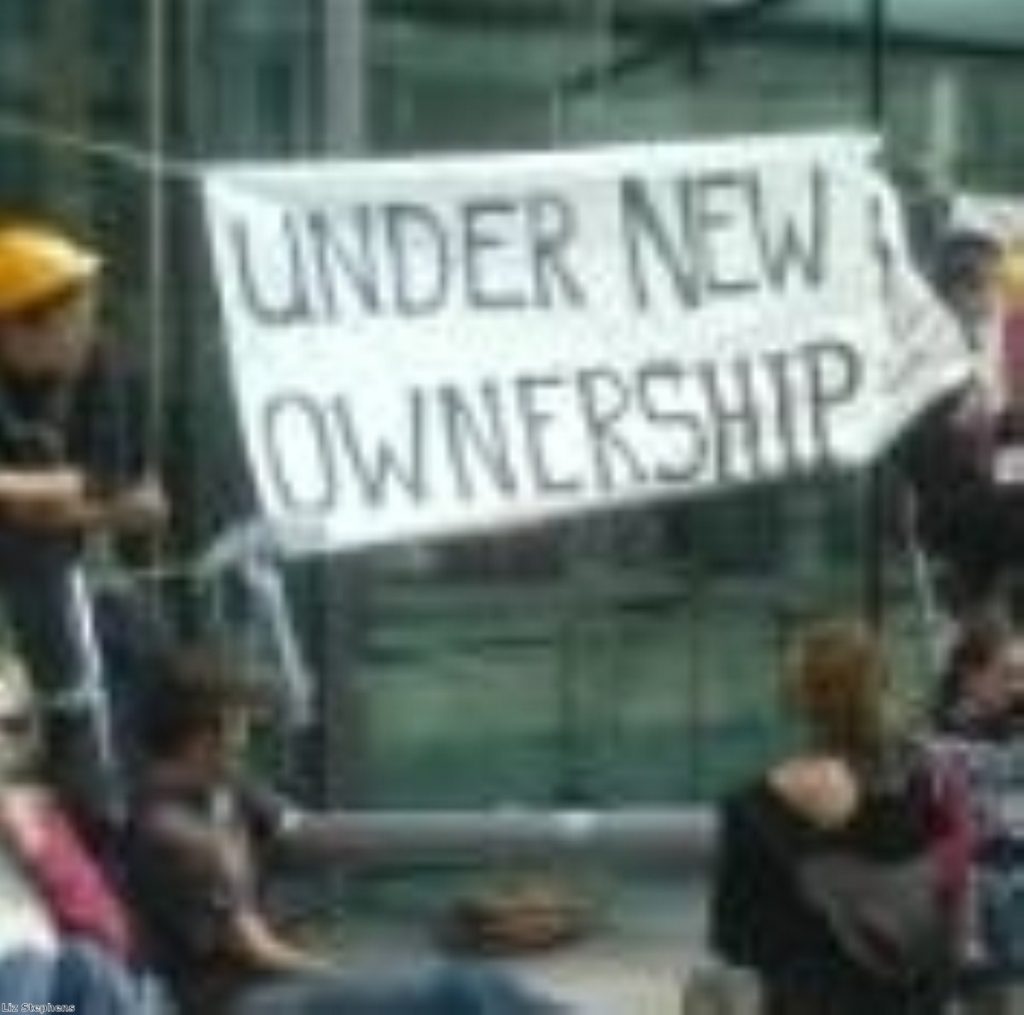New legal action over latest RBS bailout
By Ian Dunt
Campaigners will serve the Treasury with their application to the high court today, as they question the legality of the government’s £25 billion cash injection into RBS.
Activists from three development and human rights charities insist the provision of the capital contravenes the Treasury’s own guidance on public money and human rights.
“For the second time in a year we are compelled to take the Treasury to court because of the way it is managing the Royal Bank of Scotland,” Ian Leggett, director at People & Planet, one of the groups trying to implement the action, said.


“RBS is the dirtiest bank in the UK. It has a long track record of financing projects and activities that will increase global carbon emissions, make climate change more likely and are destroying precious habitats.”
The Treasury’s guidance requires human rights and environmental impacts to be ascertained when determining if and how public money is spent.
But the three groups – the World Development Movement, Platform and People & Planet – believe no proper assessment was undertaken.
“The assessment completed by the Treasury fails completely to comply with the mandatory requirements of its own guidance and its failure to apply a consistent policy by insisting on control over the payment of bonuses but not over the lending to climate change and human rights damaging projects is unlawful,” Rosa Curling, of Leigh Day & Co Solicitors, said.
During a similar legal campaign last year, the Treasury insisted preventing the funding of RBS on environmental or human rights grounds would be harmful to the “financial stability” of the bank.
The Treasury also argued that to use RBS’ need for capital as a mechanism by which the Treasury could impose wider government policy objectives would be inappropriate.
The campaigners argue this is clearly inconsistent with the Treasury’s position and subsequent intervention over the bonuses awarded by RBS to its staff.
A condition of RBS receiving the November cash injection under the asset protection scheme was that it would increase lending to businesses and home owners and not pay cash bonuses to staff earning over £39,000.
The campaigners say that a similar condition could and should have been imposed on RBS in relation to their investments in projects and companies which are harmful to the environment and human rights.
“It is difficult to understand why the Treasury can order RBS to increase its lending to small businesses and home owners or curb bonuses but believe it would be unlawful for it to tell RBS to phase out its lending in hugely controversial tar sands, and investing in low carbon projects instead,” said Deborah Doane, director of the World Development Movement.
“This is hypocrisy on a grand scale. The Treasury has shown that is has the power, if not the will, to intervene in RBS’ lending for the public good.”
The news comes just one day after MPs called on RBS chiefs to reconsider their bonus plans.
Liberal Democrat Treasury spokesman Vince Cable said: “RBS are paying little more than lip service to the public outrage over the level of bankers’ bonuses. This is a state-owned bank, owned by taxpayers many of whom have lost their jobs or seen pay freezes.”
The Treasury and RBS were unable to comment.

